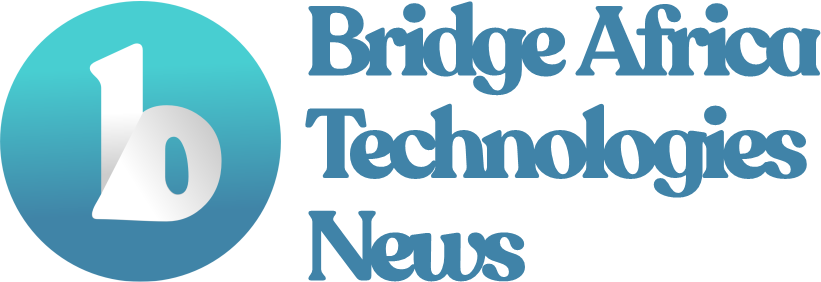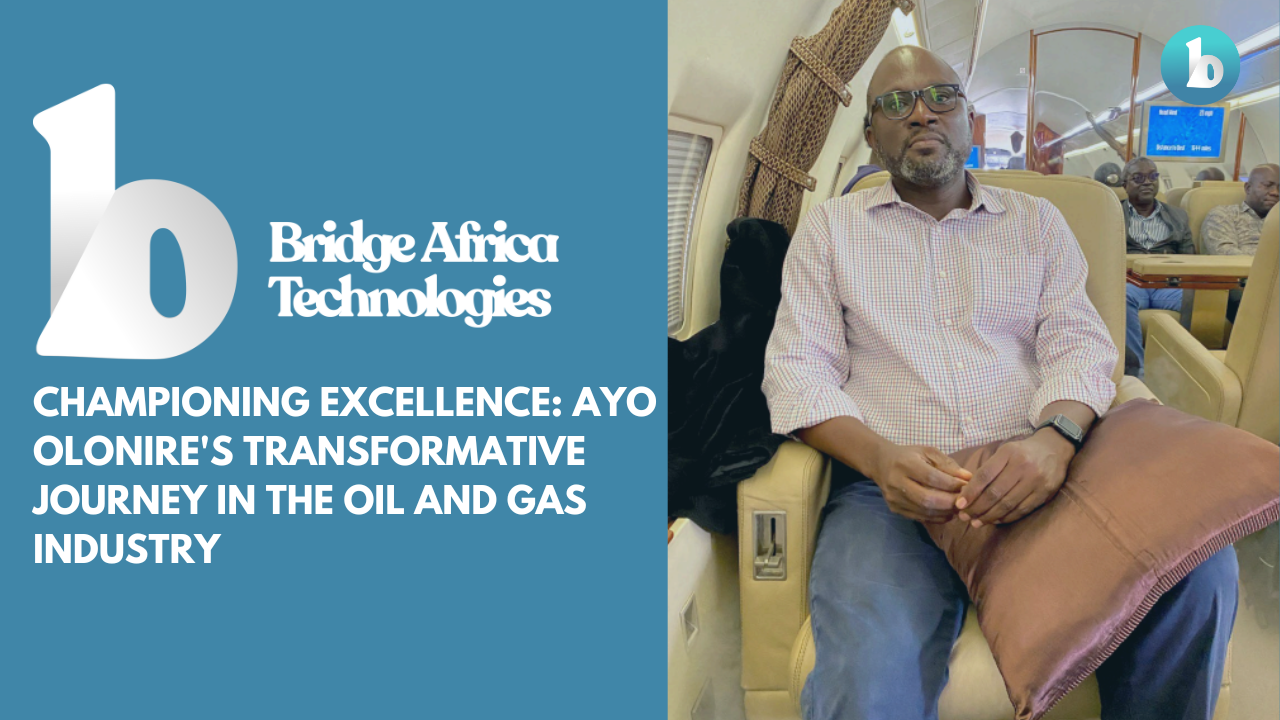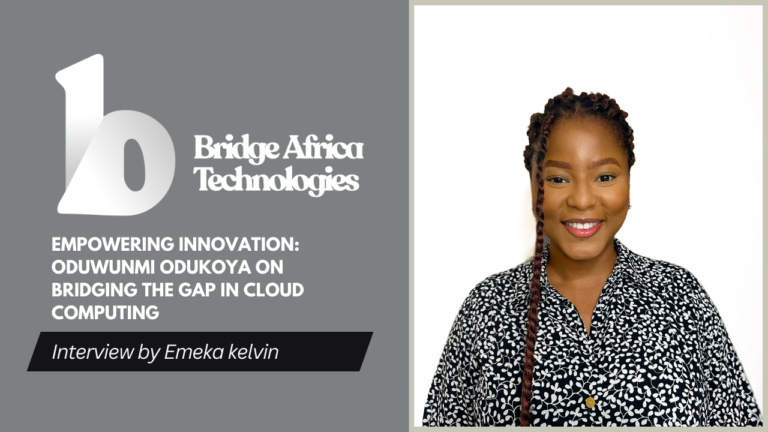Meet Ayo Olonire (B.Eng, MBA, PMP); He is a distinguished Mechanical Engineer with a career spanning over 24 years in the highly demanding oil and gas industry. Currently, as the Head of Facilities Engineering at Conoil Producing Limited, Ayo has been instrumental in shaping the company’s engineering landscape, leading critical projects that have significantly enhanced operational efficiency and safety. His career reflects a deep expertise in the design, installation, commissioning, and maintenance of complex offshore and onshore infrastructures, including platforms, pipelines, flowlines, and wellhead platforms.
Ayo’s career journey is marked by several high-impact roles that have seen him manage large-scale engineering projects across different continents. His international experience includes pivotal stints in Paris with Technip and Doris Engineering, where he played a key role in the detailed engineering designs of the AKPO FPSO and OFON-2 Topside projects. In the United States, Ayo represented his company in the engineering, procurement, and construction (EPC) of a Mobile Offshore Production Unit (MOPU), successfully managing its conversion from a jack-up drilling rig to a production-ready vessel. These experiences not only expanded his technical expertise but also honed his leadership skills in navigating complex, multinational projects.
In addition to his technical prowess, Ayo is known for his exceptional project management capabilities. He holds a PMP certification, which has been instrumental in his ability to deliver projects on time and within budget. His leadership in the completion of a 32 km offshore pipeline from Ango field to Auntie Julie platform, and the engineering and commissioning of the Obodo flow station and storage tank farm, are testaments to his ability to manage resources effectively, mitigate risks, and ensure the successful delivery of complex engineering projects.
Ayo’s contributions to the oil and gas industry have been recognized through several achievements, including the cost-efficient repair solutions implemented on offshore production platforms, which not only saved significant operational costs but also enhanced the longevity and safety of the facilities. His innovative approach, combined with his deep technical knowledge, makes him a valuable asset in the industry.
One of Ayo’s most notable qualities is his commitment to knowledge transfer and capacity building. He has successfully managed the training and development of engineering teams, particularly during his time on the Ofon-2 project, where he was responsible for the on-the-job training of over 70 Nigerian engineers. This dedication to nurturing local talent is a reflection of his broader vision to contribute to the sustainable development of the oil and gas sector, particularly in Nigeria.
Looking forward, Ayo is committed to furthering his impact on the industry by exploring new frontiers in engineering innovation. His future aspirations include leveraging advanced technologies to optimize oil and gas operations, with a particular focus on enhancing the safety and environmental sustainability of engineering practices. With his extensive experience, strategic foresight, and unwavering dedication to excellence, Ayo Olonire is poised to continue making significant contributions to the global energy sector, leaving a lasting legacy of innovation and leadership.
Why We Selected Ayo As one of this Year’s BAT Influential People Award Winners in Nigeria
Ayo Olonire’s selection as one of the winners of the BAT Most Influential People Award in the oil and gas sector is a recognition of his extraordinary contributions, innovative leadership, and unwavering commitment to excellence over a remarkable 24-year career. Ayo’s journey in the oil and gas industry is marked by a series of significant achievements that have not only set new standards within the sector but have also made a lasting impact on the industry’s evolution, particularly in Nigeria.
From the outset of his career, Ayo distinguished himself as a top-tier Mechanical Engineer, graduating as the best student in his class at the University of Ilorin. His technical expertise was further enhanced by an MBA from Lagos Business School, providing him with a unique blend of engineering precision and strategic business acumen. These qualifications laid the foundation for his successful career, during which he has taken on increasingly complex and influential roles.
Throughout his career, Ayo has been driven by a vision of not just advancing the industry but also empowering others within it. His dedication to capacity building is evident in his management of on-the-job training for over 70 Nigerian engineers during the OFON-2 project. This initiative not only enhanced the skills of the local workforce but also contributed to the growth of indigenous expertise in the oil and gas sector, aligning with Nigeria’s broader goals of local content development.
Ayo’s contributions have not gone unnoticed. His leadership, innovation, and dedication to excellence have earned him numerous accolades, including the recognition as one of the BAT Most Influential People in Nigeria. This award celebrates not just his individual accomplishments, but also his broader impact on the oil and gas industry, where he has consistently pushed the boundaries of what is possible.
In a sector known for its complexity and challenges, Ayo Olonire stands out as a beacon of innovation, leadership, and excellence. His work has not only advanced the capabilities of the companies he has worked with but has also left a lasting imprint on the industry as a whole. As a winner of the BAT Most Influential People Award, Ayo’s achievements serve as an inspiration to others in the industry, highlighting the power of vision, dedication, and the relentless pursuit of excellence.
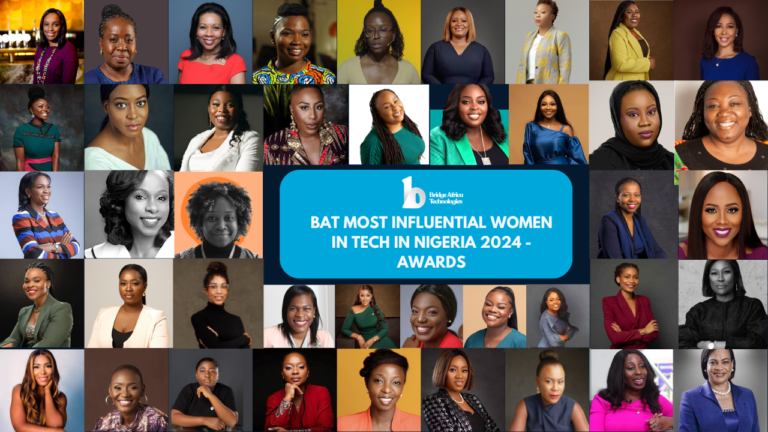
Read Also: BAT Most Influential Women In Tech In Nigeria 2024 -Awards
Our Chat with Ayo Olonire – Nigerian oil and Gas Expert
1. Can you tell us a bit about your early life and what inspired you to pursue a career in mechanical engineering?
Ayo: “I grew up in a family that placed a high value on education and intellectual curiosity. My parents always encouraged me to explore the world around me, and from a young age, I found myself fascinated by how things worked—whether it was taking apart household gadgets or understanding the mechanics behind everyday machines. This natural curiosity evolved into a deep passion for engineering, particularly mechanical engineering, because it offered a tangible way to apply scientific principles to solve real-world problems. When I entered the University of Ilorin, I was drawn to the field’s blend of creativity and precision. The rigorous academic environment, coupled with hands-on projects, reinforced my interest and helped me realize that this was not just a career path, but a vocation. Graduating as the best student in my class was a proud moment for me, as it validated my commitment and hard work. This solid educational foundation paved the way for my subsequent career in the oil and gas industry, where I have had the opportunity to apply my skills on a much larger scale.”
2. How did your education at the University of Ilorin and Lagos Business School prepare you for a career in the oil and gas sector?
Ayo: “My education at the University of Ilorin was instrumental in shaping my technical expertise. The curriculum was comprehensive, covering all the fundamental aspects of mechanical engineering, from thermodynamics to structural analysis, which are crucial in the oil and gas industry. The university also emphasized practical, hands-on learning, which allowed me to gain valuable experience in real-world engineering challenges even before I graduated. This technical background was further enriched by my MBA from Lagos Business School, which provided me with a broader understanding of business management, strategy, and leadership. The MBA program was rigorous and immersive, focusing on the dynamics of managing complex projects, financial acumen, and strategic decision-making. It was here that I learned how to navigate the intersection of engineering and business, a skill that has been crucial in managing large-scale projects and leading teams effectively in the oil and gas sector. This blend of technical and managerial education has been a cornerstone of my professional journey, enabling me to approach challenges with both an engineer’s precision and a strategist’s foresight.”
3. With over 24 years of experience in the oil and gas industry, what have been some of the key milestones in your career?
Ayo: “Over my 24-year career in the oil and gas industry, I’ve had the privilege of working on several landmark projects that have not only shaped my career but also contributed significantly to the industry. One of the early milestones was my involvement in the AKPO FPSO project, where I worked in Paris with Technip. This project was critical as it gave me exposure to international engineering standards and the complexities of offshore platform design. Another significant milestone was the OFON-2 Topside project, where I led a team in delivering detailed engineering designs within stringent timelines and budget constraints. More recently, my role in the engineering, procurement, and construction (EPC) of the Mobile Offshore Production Unit (MOPU) in the United States stands out. This project was particularly challenging due to its scale and the need for precise coordination across different geographies. Additionally, leading the engineering, procurement, construction, and commissioning of the Ango and Obodo flow stations in Nigeria was a defining moment in my career, as it involved navigating complex environmental and logistical challenges. These milestones reflect the diversity of my experience and my ability to deliver high-impact projects across different regions and engineering disciplines.”
4. Can you elaborate on your role in the AKPO FPSO and OFON-2 Topside projects? What were the challenges, and how did you overcome them?
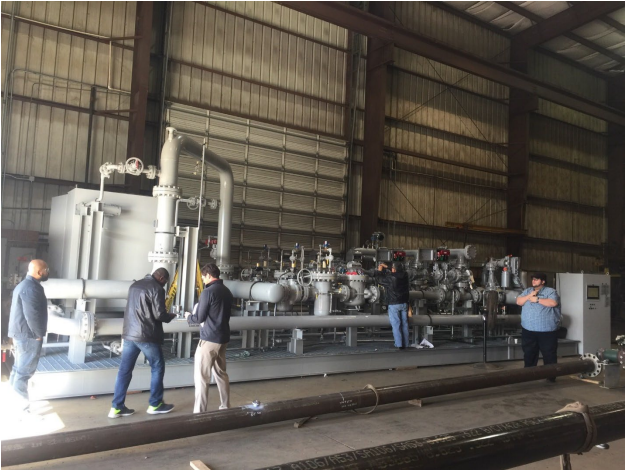
Ayo: “In the AKPO FPSO and OFON-2 Topside projects, I was deeply involved in the detailed engineering design, particularly focusing on the piping and mechanical systems. These projects were critical in my career as they required a deep understanding of offshore engineering principles, as well as the ability to work within a multidisciplinary and multicultural team. One of the major challenges we faced was ensuring that our designs met the stringent safety and operational requirements mandated by both the client and international regulatory bodies. The complexity was further heightened by the need to integrate various engineering disciplines seamlessly, all while adhering to tight schedules and budgets. Working in Paris, I had to navigate cultural differences and time zone challenges to ensure effective communication and coordination between the international teams. We overcome these challenges through meticulous planning, frequent cross-disciplinary meetings, and a strong focus on quality assurance at every stage of the project. The successful completion of these projects not only strengthened my technical expertise but also enhanced my project management and leadership skills, preparing me for even more complex roles in the future.”
5. What specific skills do you bring to managing construction activities like dredging, sand filling, and heavy lifting in offshore environments?
Ayo: “Managing construction activities in offshore environments requires a unique combination of technical skills, hands-on experience, and a keen understanding of safety and environmental considerations. My specific expertise lies in the meticulous planning and execution of complex construction tasks such as dredging, sand filling, piling, and heavy lifting. These activities are critical in the development and maintenance of offshore facilities, and they require precise coordination and risk management. Over the years, I’ve developed a deep understanding of the geotechnical and structural aspects of these tasks, ensuring that each step is carried out with the highest level of precision. Additionally, I prioritize safety above all, ensuring that all operations are conducted in compliance with industry standards and best practices. My experience in leading diverse teams has also taught me the importance of clear communication and collaboration, especially in challenging offshore environments where conditions can change rapidly. By combining technical know-how with strong leadership, I’ve successfully managed these complex construction activities, contributing to the timely and safe delivery of multiple offshore projects.”
6. How do you approach the challenges of working on both onshore and offshore projects, particularly in diverse locations like the USA, Nigeria, and Paris?
Ayo: “Working on both onshore and offshore projects in diverse locations such as the USA, Nigeria, and Paris has taught me the importance of adaptability and cultural sensitivity. Each location comes with its unique challenges—whether it’s the regulatory landscape, environmental conditions, or logistical complexities. My approach is to first gain a deep understanding of the local context, including the cultural, environmental, and regulatory factors that could impact the project. This involves close collaboration with local teams and stakeholders to ensure that we’re aligned in our objectives and approach. Flexibility is key; I tailor my management style to fit the specific needs of each project, whether it’s navigating the highly regulated environment of the USA or addressing the logistical challenges of working in remote Nigerian swamps. Communication is also crucial, especially when managing teams across different time zones and cultural backgrounds. I make it a point to establish clear lines of communication and foster a collaborative environment where all team members feel valued and empowered. By approaching each project with an open mind and a willingness to adapt, I’ve been able to successfully manage complex projects across various regions.”
7. Can you discuss a time when you had to implement a cost-efficient solution for a major engineering problem? What was the outcome?
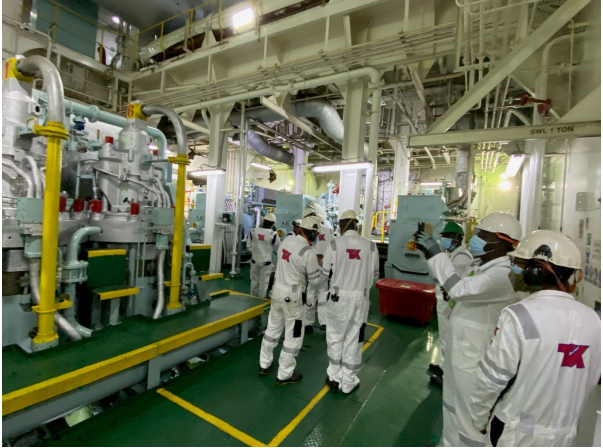
Ayo: “One of the most memorable instances where I had to implement a cost-efficient solution was during the repair of leaking risers on an offshore production platform. The initial recommendation was to replace the risers entirely, which would have been a costly and time-consuming process. However, I identified an alternative solution using clockspring wrap technology, which is a non-intrusive repair method that reinforces the existing risers without the need for full replacement. This approach was not only significantly more cost-effective but also minimized operational downtime, which is critical in the oil and gas industry. The successful implementation of this solution saved the company millions of dollars and extended the operational life of the risers. It also demonstrated the importance of thinking creatively and exploring innovative solutions to engineering challenges. The positive outcome of this project reinforced my belief in the value of cost-efficient engineering and its impact on the overall success of a project.”
8. How do you ensure the safety and integrity of offshore platforms and other facilities you manage?
Ayo: ”Safety and integrity are non-negotiable in the oil and gas industry, especially when dealing with offshore platforms and other critical infrastructure. My approach to ensuring safety starts with a thorough understanding of the industry’s regulatory requirements and best practices. I implement a robust safety management system that includes regular risk assessments, safety audits, and preventive maintenance programs. These systems are designed to identify potential hazards before they become critical issues and to ensure that all equipment and processes meet or exceed industry standards. I also place a strong emphasis on training, ensuring that all team members are well-versed in safety protocols and understand the importance of adhering to them at all times. In addition, I encourage a culture of safety where team members are empowered to speak up and report potential risks without fear of reprisal. This proactive approach to safety has resulted in a strong track record of incident-free operations and has been key to maintaining the integrity of the facilities under my management.”
9. How has your Project Management Professional (PMP) certification influenced your approach to managing large-scale projects?

Ayo:” The PMP certification has had a profound impact on how I approach project management, particularly in large-scale and complex projects. The certification provided me with a structured framework for managing projects, which includes everything from initiating and planning to executing, monitoring, and closing projects. One of the key takeaways from the PMP program is the emphasis on stakeholder management, which is crucial in the oil and gas industry where projects often involve multiple stakeholders with varying interests. The PMP framework also emphasizes the importance of risk management, which has been invaluable in identifying and mitigating potential risks before they impact the project. Additionally, the certification has enhanced my ability to manage project scope, time, and cost effectively, ensuring that projects are delivered within budget and on schedule. This structured approach has been instrumental in the successful delivery of several high-profile projects in my career, and it continues to guide my project management practices today.”
10. What unique challenges have you faced in your role as the Head of Facilities Engineering at Conoil Producing Limited, and how have you addressed them?
Ayo: “As the Head of Facilities Engineering at Conoil Producing Limited, one of the unique challenges I’ve faced is managing large-scale engineering and construction projects in challenging terrains, such as swamps and offshore environments. These projects often come with logistical and environmental challenges that require innovative solutions. For example, during the development of the Ango and Obodo swamp flow stations, we had to deal with the difficult terrain and the need to minimize our environmental impact. To address these challenges, I implemented a strategy that involved using environmentally sensitive construction techniques, such as controlled dredging and sand filling, to reduce disruption to the local ecosystem. We also engaged closely with local communities to ensure that our activities were aligned with their needs and concerns, which helped to foster a positive relationship and smooth project execution. Another challenge has been ensuring the integrity and safety of our offshore facilities, which requires constant vigilance and proactive maintenance. By implementing a comprehensive preventive maintenance program and conducting regular safety audits, we have been able to maintain a strong safety record and ensure the reliability of our operations.”
11. Can you share an experience where your leadership played a crucial role in the success of a project?
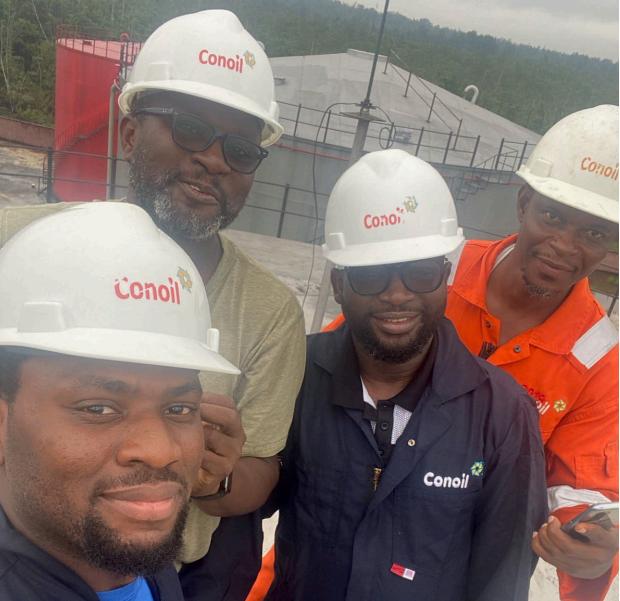
Ayo: “One of the most significant leadership experiences in my career was during the conversion of a jack-up rig to a Mobile Offshore Production Unit (MOPU) in the United States. This project was particularly challenging due to its scale and the need to coordinate multiple teams across different locations, including the United States and Nigeria. As the project leader, my role was to ensure that all teams were aligned with the project objectives and that communication flowed seamlessly between the various stakeholders. This required a hands-on leadership approach, where I was actively involved in problem-solving and decision-making at every stage of the project. I fostered a collaborative environment by encouraging open communication and ensuring that all team members were clear on their roles and responsibilities. My leadership was also crucial in navigating unexpected challenges, such as logistical delays and technical issues, which we addressed through adaptive planning and resource reallocation. The successful completion of the MOPU conversion was a testament to the power of effective leadership and teamwork, and it reinforced my belief in the importance of clear communication, strategic planning, and collaboration in achieving project success.”
12. How do you stay updated with the latest developments and technologies in the oil and gas industry?
Ayo: “ Staying updated with the latest developments and technologies in the oil and gas industry is essential, given the rapid pace of innovation and the industry’s evolving challenges. I make it a point to regularly attend industry conferences and seminars, where I can network with peers and learn about the latest trends and technologies. I also participate in professional networks and online forums where industry experts share insights and discuss emerging issues. In addition to these external sources, I subscribe to leading industry journals and publications, which provide in-depth analysis and updates on technological advancements and regulatory changes. Continuous learning is a priority for me, so I engage in professional development courses and certifications to enhance my skills and stay ahead of the curve. I also encourage my teams to stay informed and participate in knowledge-sharing sessions within the organization. This commitment to staying updated has allowed me to incorporate the latest technologies and best practices into my projects, ensuring that we remain competitive and at the forefront of the industry.”
READ ALSO: From Innovation to Implementation: Michael Sanya Oluyede’s Journey in IT and Cybersecurity
13. What are your future aspirations in the oil and gas industry, and how do you plan to achieve them?
Ayo:” My future aspirations in the oil and gas industry revolve around driving innovation and advancing the efficiency and sustainability of engineering practices. I am particularly interested in exploring how advanced technologies, such as automation, artificial intelligence (AI), and machine learning, can be integrated into project management and operational processes. These technologies have the potential to revolutionize the industry by improving safety, reducing costs, and optimizing resource utilization. To achieve these aspirations, I plan to continue investing in my professional development by staying updated with the latest technological advancements and seeking opportunities to lead projects that push the boundaries of what is possible in the industry. I also aim to collaborate with industry experts, academia, and technology partners to explore innovative solutions to the challenges facing the oil and gas sector. Ultimately, I envision contributing to a more sustainable and technologically advanced future for the industry, where engineering practices are not only efficient but also environmentally responsible. By remaining committed to excellence and innovation, I believe I can play a key role in shaping the future of the oil and gas sector.”
14. As one of the winners of the BAT Most Influential People in Nigeria 2024, what would you like to say to us, the organizers of this award?
Ayo: “First and foremost, I want to express my deepest gratitude to the organizers of the BAT Most Influential People in Nigeria 2024 award. Being recognized alongside such esteemed individuals is truly an honor and a humbling experience. This award is not just a personal achievement but a testament to the hard work and dedication of everyone I’ve had the privilege of working with throughout my career. I see this recognition as a validation of the efforts we’ve put into advancing the oil and gas industry in Nigeria and beyond.
I would also like to commend the BAT team for their commitment to highlighting the contributions of Nigerians across various sectors. By recognizing and celebrating excellence, you are inspiring a new generation of leaders who will continue to drive innovation and progress in our country. This award motivates me to keep pushing the boundaries of what is possible in my field, and to continue making a positive impact on the industry and the communities we serve.
Thank you for this incredible honor. I am deeply encouraged to keep striving for excellence, and I look forward to contributing even more to our nation’s development in the years to come.”
Our Conclusion:
As our interview session with Ayo Olonire draws to a close, it’s clear that his extraordinary career and profound impact on the oil and gas industry are nothing short of remarkable. Ayo’s journey, spanning over 24 years, has been marked by groundbreaking achievements, innovative leadership, and a relentless pursuit of excellence. From his early days as the best graduating student in Mechanical Engineering at the University of Ilorin, to his transformative role in high-stakes projects like the AKPO FPSO and OFON-2 Topside designs, Ayo has consistently demonstrated a blend of technical prowess and strategic vision that sets him apart in the field.
One of the highlights of this interview was Ayo’s reflection on his leadership in the conversion of a jack-up rig to a Mobile Offshore Production Unit (MOPU) in the United States—an undertaking that showcased his ability to manage complex, multinational projects with precision and efficiency. Additionally, his innovative approach to solving engineering challenges, such as the cost-effective repair of leaking risers using clock spring wrap technology, underscores his commitment to sustainability and operational excellence.
Moreover, Ayo’s dedication to nurturing local talent and his significant contributions to Nigeria’s oil and gas sector were evident in his role in training over 70 Nigerian engineers during the OFON-2 project. This initiative not only strengthened the local workforce but also aligned with Nigeria’s broader goals of increasing local content and expertise within the industry.
As we wrap up, it’s worth noting that Ayo Olonire’s selection as one of the BAT Most Influential People in Nigeria is a testament to his enduring impact and leadership. Bridge Africa Technologies is proud to recognize him as one of the Nigerians excelling abroad, making significant contributions not only to the industry but to the global community at large. Ayo’s story is one of perseverance, innovation, and leadership—a narrative that inspires and highlights the potential of Nigerian professionals to make a lasting impact on the world stage.
In conclusion, Ayo’s journey is far from over, and his aspirations to continue driving innovation and excellence in the oil and gas sector will undoubtedly leave a positive and lasting legacy. His expertise, combined with his unwavering dedication to advancing the industry, positions him as a key figure who will continue to shape the future of energy, both in Nigeria and beyond.
